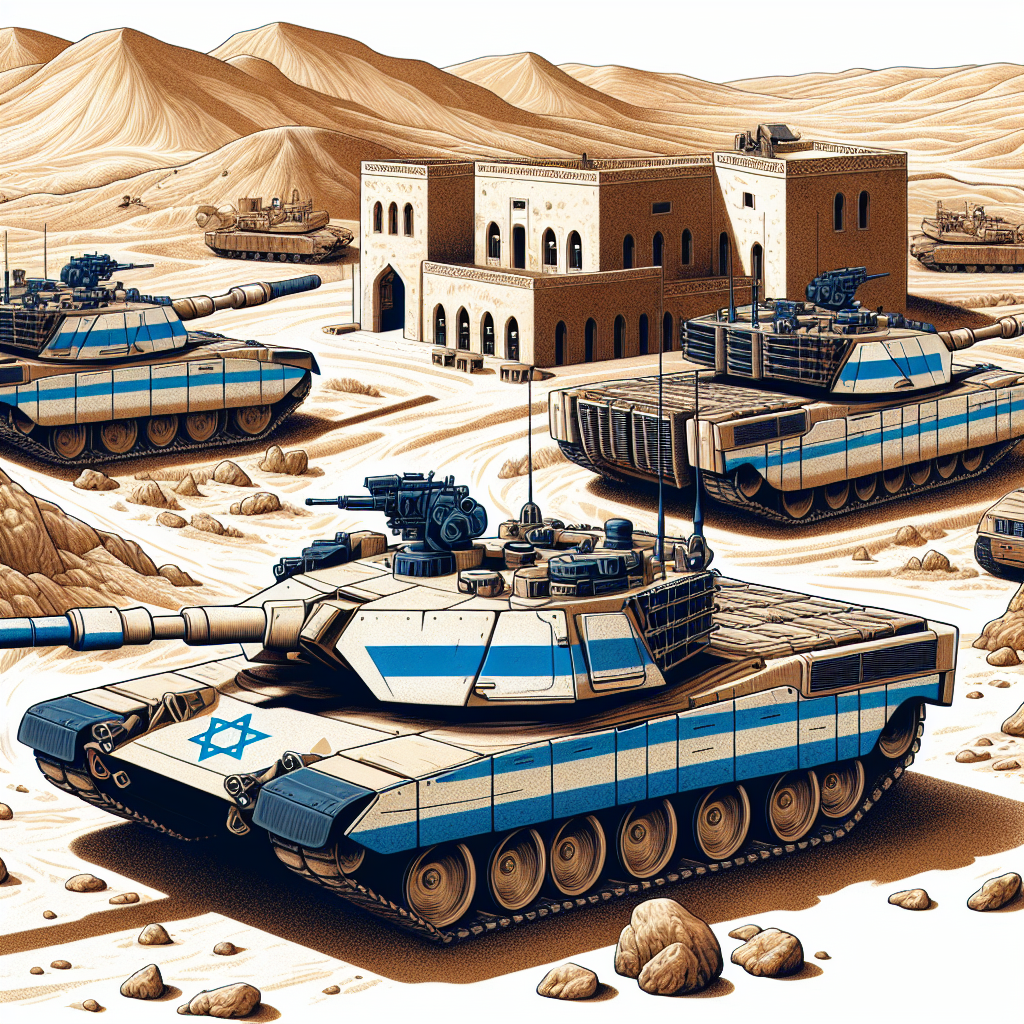Understanding the Presence of Israeli Tanks in the West Bank
Understanding the Presence of Israeli Tanks in the West Bank
Background and Context
The deployment of Israeli tanks in the West Bank has sparked significant international attention and debate. This move is part of a broader strategy by Israel to address security concerns and manage tensions in the region. The presence of military forces in this area is not new, but the introduction of tanks marks a notable escalation.
Reasons Behind the Deployment
- Security Concerns: Israel cites increased security threats from militant groups as a primary reason for the deployment.
- Deterrence: The presence of tanks is intended to deter potential attacks and demonstrate military strength.
- Political Signals: This action sends a message to both domestic and international audiences about Israel’s commitment to its security policies.
Reactions and Implications
The deployment has elicited varied reactions from different stakeholders:
- Palestinian Response: Palestinian authorities and residents have expressed concern and anger, viewing the tanks as an escalation of military occupation.
- International Community: Global reactions have been mixed, with some countries calling for restraint and others supporting Israel’s right to defend itself.
- Humanitarian Concerns: There are fears about the potential impact on civilian life and the humanitarian situation in the West Bank.
Potential Outcomes
The presence of Israeli tanks in the West Bank could lead to several potential outcomes:
- Increased Tensions: The situation may lead to heightened tensions and potential clashes between Israeli forces and Palestinian groups.
- Diplomatic Efforts: There may be renewed diplomatic efforts to address the underlying issues and seek a peaceful resolution.
- Long-term Impact: The deployment could have long-term implications for Israeli-Palestinian relations and the broader Middle East peace process.
Conclusion
The deployment of Israeli tanks in the West Bank is a complex issue with significant security, political, and humanitarian dimensions. While it aims to address immediate security concerns, it also raises questions about the future of the region and the prospects for peace. Understanding the motivations and potential consequences of this action is crucial for comprehending the broader dynamics at play in the Israeli-Palestinian conflict.




































